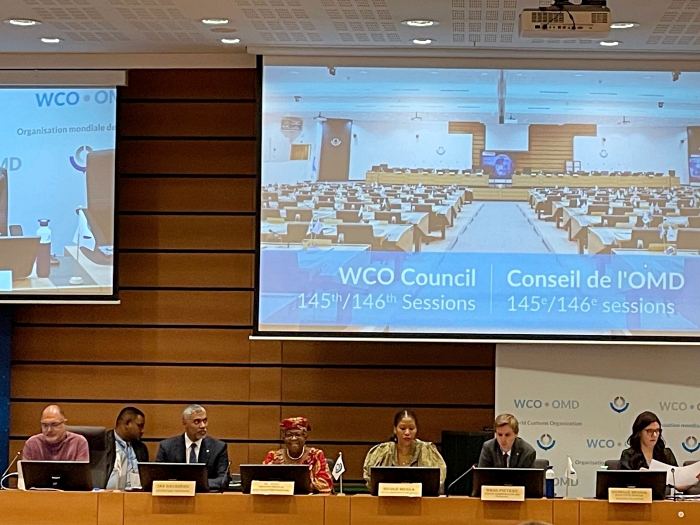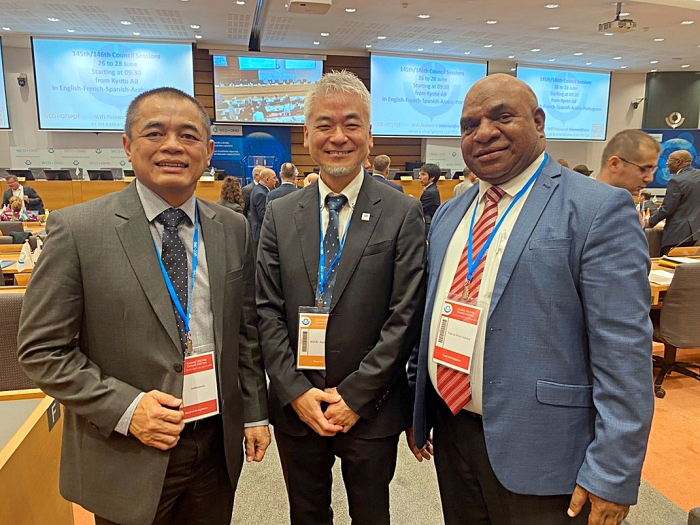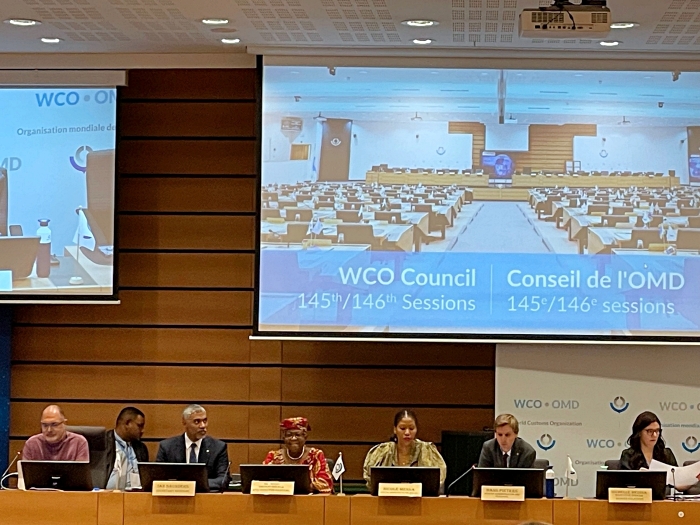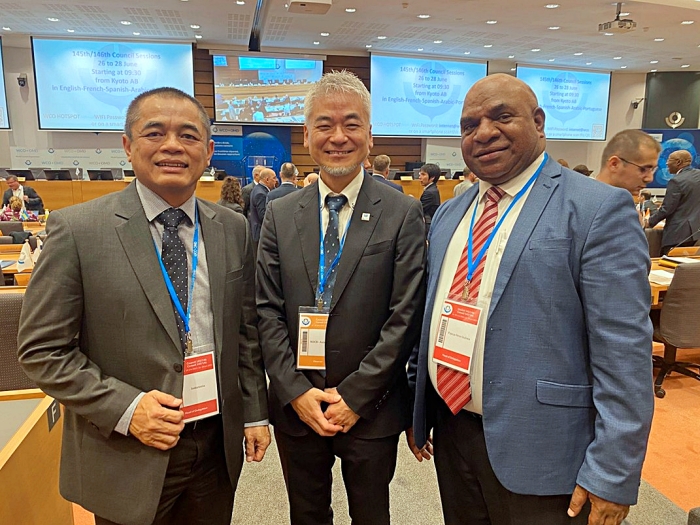WCO Council 2025: Together we advance, through a New Capacity Building Paradigm

26-28 June 2025, Brussels, Belgium
The World Customs Organization held Council Sessions, the governing body of the organization. The Heads of Customs administrations gathered in Brussels for its annual meeting. Jun Tajima, the Head of ROCB A/P participated as an observer.
The Keynote address was made by the Director-General of the World Trade Organization (WTO), Dr. Ngozi Okonjo-Iweala. She pointed out geopolitical tensions and threats to multilateralism but showed a beacon of light that both Organisations can show that border procedures are not an additional bar barrier to trade, but a bridge to secure predictable trade.

Mr. Ian Sanders, the Secretary General of the WCO responded in stressing the importance of coordinated efforts in trade facilitation, security, and combating illicit trade. Customs remains committed to transparency, efficiency, and supporting a safe, prosperous global trade environment.
During the Council, the Capacity Building New Paradigm, which was proposed by the Secretary General, was adopted with overwhelming support by Members. It mentions WCO’s unwavering commitment to Member centricity while it centres around the strategic alignment of the WCO Strategic Plan, evidence-based assistance, more use of WCO accredited experts and so on.
As the closest partner to Member Administration, the ROCB A/P communicated the Secretariat officials with a series of meetings on the sideline of the Sessions, to understand the idea and the procedures that comes after July 2025.

The New Paradigm also provides for the engagement framework and it discusses the role of the Regional Entities, or ROCB among others. It recognises that the ROCBs have a pivotal role in the implementation of the CB Paradigm and the WCO will develop a practical Reference Document on the ROCBs in coming years. The ROCB A/P is committed to engage, or even to lead the discussion by showing the best examples of the ROCBs.
The ROCB A/P keeps close communications with the Secretariat and Members so that the New Paradigm will turn the WCO’s assistance in a better way, and this transition period would not affect the delivery of Capacity Building activities in the Region.


